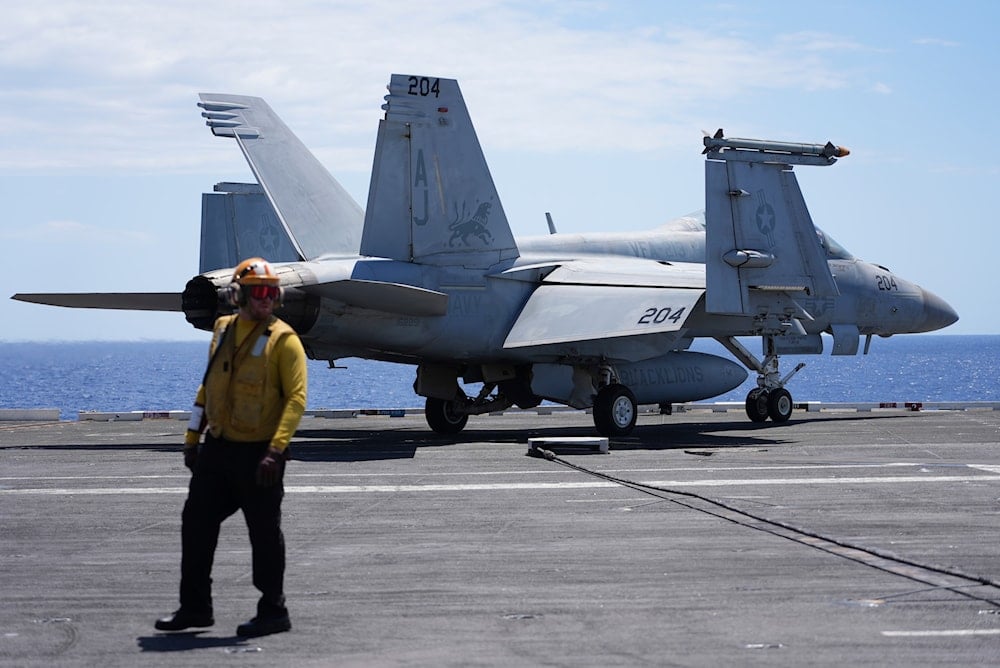NATO launches annual nuclear drills amid rising tensions
The NATO nuclear drills 2025, known as Steadfast Noon, begin across Europe amid concerns over the future of the US military presence and rising tensions with Russia.
-

An F-16 Hornet is parked on the flight deck of the nuclear-powered aircraft carrier USS Gerald R. Ford during military exercises in the Mediterranean off the coast of Naples, Italy, Tuesday, July 29, 2025. (AP)
NATO Secretary-General Mark Rutte said the North Atlantic Treaty Organization’s annual nuclear deterrence drills will begin on Monday, a routine event that holds added significance as the US considers scaling down its military presence in Europe.
The exercises, called Steadfast Noon, will take place in the Netherlands, Belgium, the UK, and Denmark following alleged drone incursions and cyberattacks that rattled several northern European countries just weeks ago.
This two-week program involves 14 members of the military alliance and is happening while Europe fears a possible reduction or withdrawal of US military assets, which has prompted several European NATO allies to discuss changing the continent's nuclear architecture for the first time in decades.
Colonel Daniel Bunch, the chief of nuclear operations at NATO’s military branch, told reporters that the US has “signaled thus far no change to their current posture in Europe” and that “for the time being the US is committed, it hasn’t changed its policies and will be participating in this exercise.”
Jim Stokes, the director of NATO’s nuclear policy, told reporters, “We are trying to be more open about this," noting that “it was only four years ago that we declassified the name of the exercise, we used to not talk about it very much.”
NATO nuclear shifts and Putin’s warning
While NATO says the exercises are not held with any particular adversary in mind, Stokes said that Russia’s nuclear posture was closely monitored, citing Moscow’s use of dual missiles that can carry nuclear warheads in Ukraine.
Although France keeps its nuclear deterrence capacities separate from NATO, French President Emmanuel Macron has this year offered to start talks on extending the country’s nuclear shield to European allies, an offer which has drawn strong interest from countries such as Poland.
During a speech at the 22nd annual Valdai Discussion Club on October 2, Vladimir Putin stated that Russia is closely monitoring what he described as the growing militarization of Europe, warning that Moscow’s response would be very convincing, while he also stressed that Russia had never initiated any military confrontation and insisted that speculation about Russian plans to attack NATO was unbelievable.
The Russian president argued that the conflict in Ukraine could have been avoided if NATO had not expanded toward Russia's borders, adding that Western powers consider Ukrainians expendable. Putin accused Brussels of constantly escalating the conflict in Ukraine, claiming Europe had no other strategic goal, and he suggested that, despite brainwashing, public opinion in Ukraine was shifting, adding that he believed goodwill would eventually prevail.
He added that Europe, once admired globally, was shrinking and fading away, in contrast to the rise of other regions and partnerships.

 3 Min Read
3 Min Read









